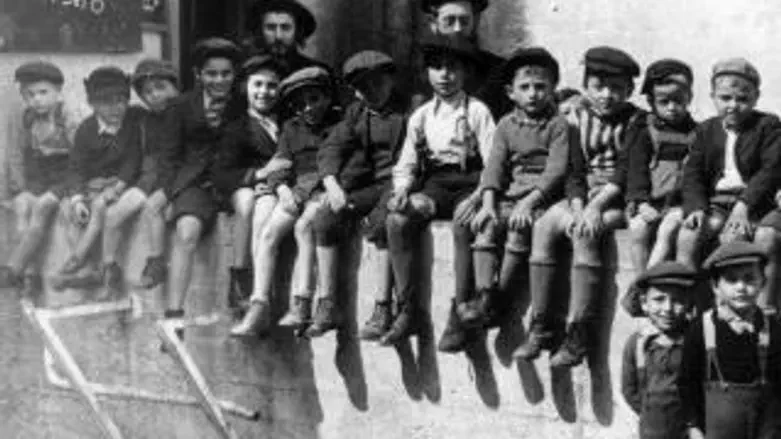
To Know Before Whom One Toils
Who decides who is good enough?

Of all the pressures and stresses that buffet our young people today, the ones that are most discouraging and disquieting are the ones that originate with the very people who should be working diligently to ensure that our young people grow to be healthy, committed and engaged Jews, bound by their heads and their hearts to the Jewish community.
And yet, so very often I find myself astonished by the leaders of the Jewish community who seem, in their absolute focus on piety or purity or Jewish political correctness, to be doing everything in their power to undermine the integrity of the entirety of the Jewish community.
If that sounds like I am being overly dramatic, please consider. Not very long ago, a sixteen year old young man – a boy! – was introduced to me. As part of the introduction, I was informed that the young man had been asked to leave his yeshiva.
“Really?” I asked, concerned now. The young man seemed like a perfectly average young man. Not a trouble maker or a problem. “What happened?”
The young man lowered his eyes. “I am not good enough,” he said softly, his emotion choking the words in his throat.
Not good enough? His words cut at my heart. What does that mean, not good enough? Good enough for what? To become the next Gaon of Vilna? To become the next Steipler? Looking at the young man before me, I could see he was most certainly good enough to be like so many in previous generations had been – a committed Jew, learning mishnayos, kitzur shulchan aruch, reviewing parshat hashavuah and, most importantly, feeling the embrace of the Jewish community.
So many of our young people have been turned off and turned away. Have our yeshivos become so much like the Ivy League that they exist only for the metzuyanim and the fin’e bochurim – the crème de la crème? More often than not, the yeshivos seem to take pleasure in sending out the lo niskabel (not accepted) slips in response to the earnest application from students and families.
This saddens me in so many ways. Through elitism and arrogance, we have lost the ability to recognize and honor all who made the effort to learn; who sought to achieve the best they were able to achieve. Have we fallen so far from the shtetl when shoemakers, tailors, carpenters, water carriers – every Jew – had his own shtiebel where he could learn mishnayos and midrash with his neighbor and friend? Have we grown so strong in America that it is not so important that every Jew be able to daily recite Tehilim? Have we become so insular that we do not value the individual who becomes – God forbid! – nothing more than a sweet (or even not-so-sweet) yidden?
Do we no longer care about the effort our students make? Do we only judge their accomplishments?
Has the yeshiva community become so much like the secular community that all that counts is the bottom line, not the effort expended? Have we shirked off the genuinely Jewish approach in favor of the attitude of the Philistines?
And for what?
In Pirkei Avos we are taught to “be diligent in the study of Torah… to know before Whom you toil and to know that your Employer can be relied upon to pay the wage of your labor.”
As usual, our Sages have provided a powerful response to those who feel belittled, demeaned and defeated by those who suggest, “you are not good enough”! The answer is, “You are good enough. And we know because Hashem acknowledges your labors”!
Every effort, every posuk of chumash, every mishna you wrestle with – every ounce of effort you exert – is prized by God, who can be “relied upon to pay the wage of your labor.”
Sim lev! Pay attention! God will pay the wage of your labor. That is, your effort, not necessarily your accomplishment.
The Chofetz Chaim said it best, “Ordinarily, pieceworkers are paid only for the amount they produce. If they must expend greater amounts of time to meet the quota, so be it. That is their problem. They have no claim for greater compensation once the price per item is fixed. Hashem however, most certainly pays man for his effort as well as for the actual production. A person not blessed with the Gaon of Vilna’s intelligence is most certainly not penalized for all the extra time and effort he needs to exert in order to learn and understand. He is rewarded according to his efforts… and as long as he can look in the mirror and acknowledge the efforts invested he is amply rewarded and cherished. In 2:21 we are reminded as today’s teachers and rebbeim, ‘You are not required to complete the task,’ just be sure that you did not ‘withdraw from it.’
This is the message our young people should hear from us. Not, “you are not good enough” but rather, “your efforts are cherished.” The Mishna is clear, “your Employer can be relied upon to pay you the wage of your labor.”
Why then, can’t we?
Rabbi Dr. Eliyahu Safran serves as OU Kosher’s vice president of communications and marketing.